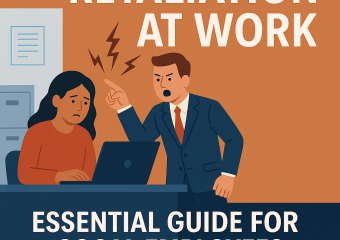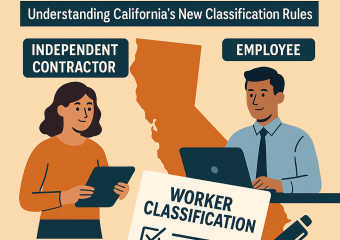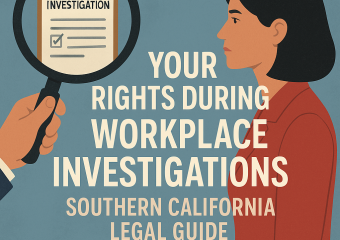SoCal Employers Beware: New Compliance Rules for Hiring and Firing in California
California is known for its dynamic economy, diverse workforce, and often complex employment laws. For employers in Southern California, staying up-to-date with the latest regulations governing hiring and firing practices is not just advisable—it’s essential. Recent changes to employment compliance rules have raised the stakes, making it more important than ever for SoCal businesses to understand their legal obligations to avoid costly penalties and potential lawsuits.
Understanding the New Employment Compliance Rules for Hiring and Firing
SoCal employers should be particularly vigilant as these new rules introduce significant procedural and documentation requirements in both the hiring and termination phases. The state has historically been an employment law leader, often setting standards that other states later adopt. From expanded antidiscrimination mandates to stricter notice requirements and enhanced employee protections, California’s recent legal updates are designed to create a more equitable workplace but come with added responsibilities for employers.
Changes Impacting Hiring Practices
Hiring reforms in California aim to promote fairness, transparency, and nondiscrimination. One key development is the expansion of the “ban-the-box” legislation. Employers can no longer ask about a candidate’s criminal history on job applications, delaying such inquiries until later in the hiring process. This adjustment compels SoCal employers to rethink their recruitment protocols and screening guidelines to ensure compliance.
Additionally, new laws require clearer communication regarding salary ranges and benefits. California now mandates that employers provide pay scale information upon reasonable request during the hiring process. For Southern California employers competing in a tight labor market, transparency in compensation can both help attract talent and reduce wage disparities.
Moreover, the state has introduced stricter rules against unlawful discrimination. This includes protections not only against bias based on race, gender, and age but also expanding to cover aspects such as hairstyle and family status. Employers must ensure their job advertisements, interviews, and candidate evaluations reflect these broadened anti-discrimination standards.
Navigating the Updated Termination Rules
Terminating employment is always a sensitive and legally charged action, but in California, the evolving compliance landscape adds layers of complexity. SoCal employers must now adhere to enhanced procedural requirements designed to protect workers from wrongful termination and unfair treatment.
One critical update is related to final paychecks. California law requires that employees who are terminated receive their final wages, including accrued vacation pay, immediately upon separation. Any delay or failure to comply can lead to penalties under waiting time laws.
Furthermore, employers are expected to provide clear written documentation supporting the reasons for termination. This is increasingly important given California’s employee-friendly legal climate and the uptick in litigation concerning wrongful dismissal. Maintaining thorough records detailing performance issues, disciplinary actions, and the rationale behind firing decisions can be invaluable for employers in defending their practices.
SoCal companies also need to exercise caution concerning the use of severance agreements and releases. California places stringent conditions on what employers can include in these documents, especially regarding waiving employees’ rights or requiring non-disclosure clauses.
Why Compliance Matters More Than Ever for SoCal Employers
Ignoring or neglecting these new regulations can result in severe consequences, including steep fines, class-action lawsuits, and damage to a company’s reputation. With California courts often favoring employees in disputes, proactive compliance isn’t merely a legal formality—it’s a strategic necessity.
Businesses operating in Southern California frequently face audits from agencies such as the California Labor Commissioner and the Department of Fair Employment and Housing. These state bodies have increased enforcement efforts to ensure workplace fairness and safeguard employee rights.
Moreover, beyond the legal implications, following compliance rules supports better employer branding. Job seekers today are increasingly drawn to companies with transparent, equitable, and respectful hiring and termination practices. Adhering to the new rules can thus improve employee morale, reduce turnover, and ultimately enhance operational efficiency.
Best Practices for Staying Compliant in Southern California
To navigate California’s evolving employment laws, SoCal employers should:
- Train HR Teams Regularly: Keep human resources professionals up to date on new regulations and compliance strategies.
- Update Hiring Protocols: Remove prohibited questions from applications, clearly communicate salary information, and incorporate inclusive job descriptions.
- Maintain Thorough Documentation: Document all hiring decisions and termination processes meticulously to provide evidence of compliance if ever challenged.
- Consult Legal Experts: Engage with employment law specialists who understand the nuances of California regulations and can audit current policies.
- Communicate Clearly With Employees: Foster transparency and open dialogue to preempt misunderstandings and grievances.
Conclusion
The landscape of employment compliance in California is rapidly evolving, and Southern California employers must stay informed and diligent. By understanding the new hiring and firing regulations and integrating best practices, businesses can minimize legal risks and promote a fair and productive workplace environment. Ultimately, embracing these changes not only ensures compliance but also positions companies for sustainable success in one of the nation’s most competitive labor markets.




